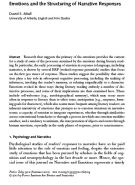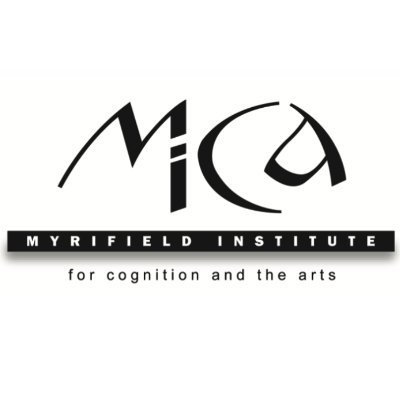
Last paper:
Grazia Pulvirenti, Renata Gambino, Neurohermeneutics. A Transdisciplinary Approach to Literature
- Peer review
- Submit a paper
- Suggest a paper
- Contact us
- Partner program
David S. Miall,
Emotions and the Structuring of Narrative Responses
 Source: Poetics Today, 32 :323-348.
Source: Poetics Today, 32 :323-348.Year: 2011
DOWNLOAD PAPER
Download size: 485.69 KB
Research that suggests the primacy of the emotions provides the context for a study of some of the processes sustained by the emotions during literary reading. In particular, the early processing of emotion in response to language, including narrative, is shown by several ERP (evoked-response
potentials) studies that focus on the first 500 msecs of response. These studies suggest the possibility that emotion plays a key role in subsequent cognitive processing, including the making of inferences, invoking the reader’s memory, or relating empathically to a character. Emotions evoked in these ways during literary reading embody a number of distinctive processes, and some of their implications are then examined here. These include self-reference
(e.g., autobiographical memory), which may occur more often in response to literary than to other texts; anticipation (e.g., suspense, forming goals for characters), which also seems more frequent among literary readers; an inherent narrativity of emotions that prompts us to construe situations in narrative
terms; a capacity of emotion to integrate experiences, whether through similarities across conventional boundaries or through a process in which one emotion modifies another; and a tendency to animism, the interpretation of objects and events through human emotions, especially in the early phases of response, prior to consciousness.
Project
The Neuro Humanities Studies Network aims at creating a multidisciplinary research community in order to develop and structure a linking platform for neuro-scientific, cognitive topics and humanities.
Click on each keyword to show papers related with it.









